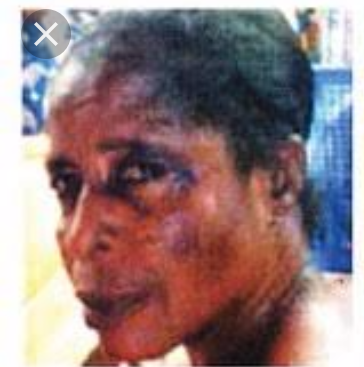Health
Senate Directive: Dermatologist Cautions Against Skin Bleaching

Dr Olarewanju Falodun, the Chief Consultant Dermatologist, National Hospital, Abuja (NHA), has cautioned Nigerians against skin bleaching, saying it may result to health disorders associated with cancer, diabetes and other complications. Falodun gave the warning in an interview in Abuja on Sunday, noting that the composition of some skin-lightening products may have dire consequences on the entire body.
the Senate, on Feb. 18, directed the National Agency for Food and Drug Administration and Control (NAFDAC) to regulate the importation, formulation and sale of cosmetics within Nigeria, especially skin bleaching products.Skin bleaching refers to the use of products to lighten dark areas of the skin or achieve an overall lighter complexion through the use of creams, soaps and pills, as well as professional treatments like chemical peels and laser therapy.
Some people apply skin lightener to their entire body to change their complexion, which experts say can be very risky, as the active ingredient in some skin lighteners is mercury, a toxic agent that can cause serious psychiatric, neurological and kidney problems.According to the consultant dermatologist, some of the body cream products also contain chemicals such as hydroquinone, steroids, cojic acids and others, and their use for a long timemay be hazardous to the skin.Falodun explained that continuous use of creams with such contents would make the topmost layer of the skin to thin out, wrinkle, irritable and may lead to poor healing of wounds.While emphasising that skin bleaching has no health benefit, the expert said “some of these bleaching agents on their own can actually lead to other problems. Some of them contain mercury and that can lead to kidney problem, kidney failure and nephrotic syndrome.“If you use steroid also for a long period, that can affect the blood stream and can affect the blood sugar, and can actually cause diabetes.”The expert, however, urged the public to seek dermatologists’ attention when facing skinproblem for professional medical advice.He said “for me, I believe that if anybody has acne or any skin problem that is disturbing enough, the person should see a dermatologist, who will advise on the best medication for treatment.”He, therefore, commended the Senate directive to NAFDAC to regulate the importation, formulation, and sale of cosmetics, especially bleaching cream within Nigeria due to its harmful effects on users.He advised that people should remain as natural as possible, eat and rest well, and consume lots of water to maintain a healthy and glowing skin.An Abuja-based general practitioner also advised Nigerians against abuse of bleaching creams, saying the act could cause skin cancer, skin damage and other health complications.The practitioner, who spoke on condition of anonymity, told NAN that any bleaching cream used in high amount, more than five per cent could damage the skin, adding that it was good to keep the skin the way God created it than bleaching it.
The expert listed bleaching products to include hydroquinone, steroid cream (Clobetasol propionate) and mercury.
She explained that “hydroquinone is used for the treatment of skin conditions but when cleared, it is advisable to stop just like you take malaria medication and after a prescribed dose, you stop.
“The issue here is the quantity. If the formulation is small, it will not have effect but if it is high concentration, it can cause skin irritation and kidney damage.”
Similarly, she said, steroid cream (clobetasol propanote), which had strong lightening effect on the skin, could also damage the skin when abused.
“It is also used to treat many skin diseases such as psoariasis and contact dermatitis but after treatment, one should stop because of the adverse effect on the body.
“It can cause stretch mark, green veins and bumps on the face. It can also cause the person to add weight and later lead to hypertension,’’ she said.
According to her, mercury, another bleaching product, has been banned in the market, adding that it can cause kidney damage too.
Meanwhile, a cross section of Abuja residents who separately spoke with NAN, said bleaching the skin was alien to the Africa culture, noting that while people bleach to alter their skin colour, they should also think about the side effects.
Cherish Adewale, a corps member, said people bleach to impress others, especially the opposite sex, that is to make others feel they look good.
“It is not good to bleach because of its adverse effects on the skin like irritation, multiple colour skin and bad odour in some cases,’’ she said.
According to her, it will be good for government to ban bleaching creams so that people will not have any option than to appreciate their skin colour.
Similarly, Christine Eke, a student of University of Abuja, said people use bleaching cream because they were not proud of their skin.
“I support the move by the Senate on bleaching creams because it will make us tolerate our culture amidst ourselves and be proud of it.’’
For Christopher Uche, a Public Servant, some people bleach their skin because they are ignorant of its health implications.
However, a cosmetic seller in Abuja who would not want to be identified, said “bleaching is a choice and people should be allowed to decide if they want to tone, bleach or maintain their skin colour.”
He added that the demand for bleaching cream was increasing, “so, whatever people want, we give to them; we are in business, afterall, it is a matter of choice.”
Meanwhile, others described the Senate directive as an infringement on the fundamental rights of the citizenry.
Some said government could ban the importation of bleaching products, but it would be difficult to monitor the use, “as it may not be possible to go about arresting people presumed to be bleaching.”
A resident of Lugbe in Abuja, Mrs Mary Agbo, who commended the move, however, said “some people cannot live without bleaching creams.”
She stressed the need for government and experts to sensitise the public about the negative effects of bleaching, saying most people do it because they were not aware of its implications.
Ada Eze, a resident of Kubwa in the Federal Capital Territory, said although bleaching of the skin was a thing of choice, Nigerians should always be proud of their colour.
Eze said “it is okay if government regulates bleaching cream importation, but it should not be imposed because people bleach for many reasons.
“I don’t know why, but I have seen the case of some parents using bleaching creams on their children.”Mrs Mary Olufemi, a businesswoman in Mpape, a suburb of Abuja, said there was need for government to carry out massive enlightenment campaign on bleaching to discourage many.She also called for tariff hike on importation and sale of such products to discourage the act.Olufemi said “another thing is that some men love women that are fair, hence the reason why some women bleach.“Some women also see it as yardstick for competition to entice the menfolk, others do it out of ignorance believing it is normal, while other women just want to be as fair as others, not minding the consequences and not thinking that others are naturally fair.“The case is same for some men too. Both men and women engage in the unhealthy act for reasons best known to them.”She, however, added that “for me, I see men who bleach their skin as womanisers; there is no reason why a man should bleach his skin if he has no hidden agenda.” (NAN)
Health
Millions of Children Experience Daily Domestic Violence in Schools, Homes Globally – WHO
Hundreds of millions of children and adolescents around the world face daily violence in their homes, schools, and elsewhere which could have lifelong consequences.The World Health Organisation (WHO) said this on Thursday.The violence includes being hit by family members, being bullied at school, as well as physical, emotional, and sexual violence, WHO said.
In most cases, violence occurs behind closed doors. More than half of those aged two to 17 or more than a billion minors in total experience violence each year according to the WHO. In three out of five children and adolescents, it is physical violence at home, with one in five girls and one in seven boys experiencing sexual violence.Between a quarter and half of minors are affected by bullying according to the information provided.Only half of the children reportedly talk about their experiences of violence and less than 10 per cent receive help.Lifelong consequences could include depression and anxiety disorders, or tobacco and drug use.As a result, many children do not reach their learning potential in school.Against the backdrop of being highly preventable, violence remains a horrific day-to-day reality for millions of children around the world leaving scars that span generations,” said Tedros Adhanom Ghebreyesus, WHO director general.The UN’s first conference on violence against children opened in Bogota, Columbia on Thursday.At the two-day conference, more than 100 countries pledged to find ways to better support overwhelmed parents and introduce school programmes against bullying and for healthy social behaviour.They also pledged to raise the minimum age for marriage.Some countries wish to generally ban children from being hit at school or home. (dpa/NAN)Health
WHO Identifies 17 Pathogens as Top Priorities for new Vaccine Development

The World Health Organisation (WHO) has listed 17 bacteria, viruses and parasites that regularly cause disease as top priorities for new vaccine development.WHO, in a study published on Tuesday, reconfirmed long-standing priorities for vaccine research and development (R&D), including for HIV, malaria, and tuberculosis – three diseases that collectively take nearly 2.
5 million lives yearly. The study is the first global effort to systematically prioritise endemic pathogens based on their regional and global health impact. Attention is also given to pathogens such as Group A streptococcus, which causes severe infections and contributes to 280,000 deaths from rheumatic heart disease, mainly in lower-income countries.Another new priority is Klebsiella pneumoniae — a bacteria that was associated with 790,000 deaths in 2019 and is responsible for 40 per cent of neonatal deaths due to blood infection (sepsis) in low-income countries.The new study supports the goal of ensuring that everyone, everywhere, can benefit from vaccines that protect against serious diseases.It aims to shift the focus in vaccine development away from commercial returns towards regional and global health needs, WHO’s Dr Mateusz Hasso-Agopsowicz, who works in vaccine research, said in a statement.He explained that in the past, vaccine R&D typically was influenced by profitability.“As a result, diseases that severely affect low-income regions received little attention.“We hope this represents a critical shift where we want to change the focus from commercial perspective profitability of new vaccines towards the actual health burden so that the new vaccine research and development is driven by health burden and not just commercial opportunities,” he said.To carry out the study, WHO asked international and regional experts what they think is important when prioritising pathogens for vaccines R&D.Criteria included deaths, disease and socioeconomic impact, or antimicrobial resistance.“We had asked experts that have expertise in pathogen epidemiology, clinicians, paediatricians, vaccine experts from all of the WHO regions, to ensure that the list and the results that we produce really reflect the needs of diverse populations worldwide,” Hasso-Agopsowicz said.Analysis of those preferences, combined with regional data for each pathogen, resulted in the top 10 priority pathogens for each of WHO’s six regions globally.The regional lists were then consolidated to form the global list, resulting in the 17 priority endemic pathogens for which new vaccines are urgently needed.To advance vaccine R&D, WHO has categorised each pathogen based on the stage of vaccine development and the technical challenges involved in creating effective vaccines.Hasso-Agopsowicz said the study is expected to guide future vaccine R&D investments, including funders, researchers and vaccine developers, and also policymakers as they “can decide whether to introduce these vaccines into immunisation programmes.” (NAN)Health
UCH JOHESU Suspends Strike

The Joint Health Sector Unions (JOHESU), University College Hospital (UCH), Ibadan,has suspended the strike it embarked on Oct. 25.The workers resumed work on Friday morning.The seven-day nationwide warning industrial action embarked upon by the unions was to press home their demands ofadjustment of Consolidated Health Salary Structure as was done with the Consolidated Medical Salary Structure sinceJan.
2, 2014 and implementation of consultant cadre for pharmacists in federal health institutions. Others are upward review in the retirement age from 60 to 65 years for health workers and 70 years for consultants, andpayment of outstanding salaries of JOHESU members in professional regulatory councils.The UCH JOHESU Chairman, Mr Oladayo Olabampe, said that the strike was suspended as directed by the national body.He explained that “the suspension followed an MoU signed between JOHESU national leadership and Federal Government.“The Federal Government asked for a maximum of six weeks counting from Oct. 31, to meet our demands.“Based on the MoU signed, the JOHESU National Executive Council met and resolved that the strike be suspended on Fridaynationwide.”According to him, JOHESU UCH is obeying the order, and workers have resumed work.Olabampe said that if the demands were not met after the six weeks, they would embark on an indefinite strike. (NAN)
























